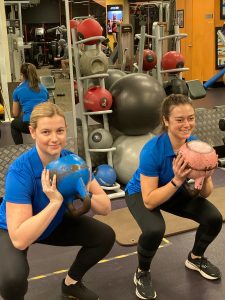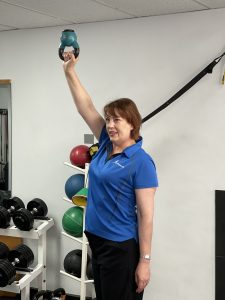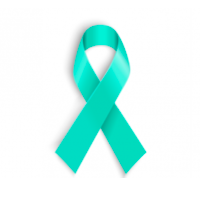Ovarian Cancer Awareness Month
Today, Longevity Exercise Physiology Drummoyne, Edgecliff, Marrickville, Castle Hill, Randwick, Pymble, Kingsgrove, Neutral Bay, Coburg – Melbourne, and Barrie, Ontario – Canada discuss Ovarian Cancer Awareness Month; what it is, its diagnosis and how you can help.
(https://cancerwa.asn.au/news/february-is-ovarian-cancer-awareness-month/)
What is Ovarian Cancer?
Ovarian Cancer is a cancer that starts in the ovaries. There are three main types; epithelial, stromal, and germ cell. Epithelial ovarian cancer is the most common type with 85% of known cases.
Ovarian Cancer is a silent killer that affects thousands of women. In Australia, around 1,720 women are diagnosed every year. Ovarian cancer can be difficult to diagnose as symptoms are often mistaken for other conditions such as indigestion, bloating, fatigue and discomfort. In most cases, women are diagnosed in late stage, where it is very difficult to treat.
“Ovarian cancer has the poorest survival rate of any female cancer in Australia.”
The exact cause of ovarian cancer is not yet known, but there are several risk factors that have been identified, including age, family history of ovarian or breast cancer, and use of hormone replacement therapy.
Ovarian cancer has the poorest survival rate of any female cancer in Australia. That is why Ovarian Cancer Awareness Month (OCAM) is held every February to raise funds for more research, diagnostics, and treatment to help those affected.
Diagnosis
If you have any of the risk factors or symptoms for Ovarian Cancer, early diagnosis and screening is key. A transvaginal ultrasound (TVUS) and the CA-125 Blood Test are the 2 tests most often used.
Ovarian Cancer Awareness Month
Due to the difficulty of early diagnosis, Ovarian Cancer Australia is dedicated to ensuring every Australian knows more about ovarian cancer and its early symptoms.
Ovarian Cancer Awareness Month advocates on behalf of those impacted by Ovarian Cancer for more researching funding, better laws and policies, greater access to affordable treatments and ultimately better outcomes for all those affected.

Important dates for your calendar:
7 February 2023: Teal Ribbon Parliamentary Breakfast at Parliament House
23 February 2023: Ovarian Cancer Australia Giving Day – all donations will be doubled thanks to generous partners.
You can host a Teal Tea to raise funds, raise awareness and share stories.
Prevention is better than cure.
Exercise is a major component of maintaining a healthy lifestyle. Regular exercise helps to maintain healthy weight, reduce stress, reduce the risk of heart disease, stroke and diabetes, osteoporosis, and many other chronic conditions. Furthermore, there are a number of research articles highlighting that exercise reduces the risk of several types of cancer, including ovarian cancer. Adding to the benefits above, exercise helps to regulate hormone levels, increases circulation, strengthens the immune system and reduces inflammation which can help to reduce the risk of developing ovarian cancer.
“… exercise reduces the risk of several types of cancer, including ovarian cancer.”
The Australian Physical Activity Guidelines recommends a minimum of 150 minutes of moderate aerobic activity such as walking, cycling and swimming per week and 2 resistance training sessions per week. Your Exercise Physiologist will help to develop a graded exercise program to enable you to reach these guidelines.

When it comes to this exercise prescription, there is no one size fits all approach. The type and intensity of exercise best to reduce the risk and if after diagnosis is dependent on age, overall health and personal preferences. This is why consulting with an Accredited Exercise Physiologist will help you to achieve the best outcomes for you via individualised exercise structure.
So this February, now that the kids / grandkids are back at school, make a commitment to yourself and your health by incorporating exercise into your daily routine.
We would like to offer 50% off your initial consult for all parents who join Longevity in February 2023.
Call Longevity Exercise Physiology and Personal Training on 1300 964 002 to get started today!

